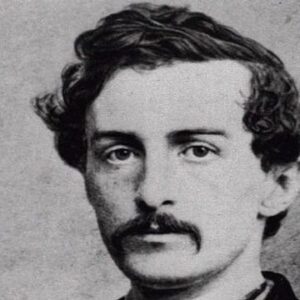John Wilkes, a journalist most known for bringing the first ‘bill’ in the British Parliament, was known as a libertine of his time. During his tenure, the British Parliament was riddled with corruption and malpractices, which had a negative impact on the country’s economy and governance. He engaged in active politics and stood in opposition to the government as a proponent of public liberty. He was ousted from Parliament and called a ‘outlaw’ for launching caustic attacks on the reigning king and his government while in the House of Commons. After failing every time he ran for Parliament, he realized that the press was the only option to challenge the government. He staged some protests and published articles criticizing the administration, some of which were directed at the king and the Prime Minister, as an anti-government campaigner. He earned the wrath of government leaders and was imprisoned several times for libel against the authority, as one might expect. In addition, the administration implemented various press prohibitions in order to prevent the media from reporting unfavorable news. Wilkes, on the other hand, did not yield to any pressure or punishment and battled zealously for journalistic freedom. Scroll down to learn more about this tenacious personality.
Childhood and Adolescence
John Wilkes was born to Israel Wilkes, a well-known distiller, and Sarah Wilkes. He received his elementary education in a school in Hertford and afterwards had private tutoring.
continued his education at the University of Leiden in the Dutch Republic, where he met Andrew Baxter, a Presbyterian minister whose religious beliefs affected him.
Career of John Wilkes
He was elected to the Royal Society in 1749, and in 1754, he was named High Sheriff of Buckinghamshire.
In 1757, he was elected to the Aylesbury parliamentary elections, and he was re-elected in 1961. He became a member of the Hellfire Club, a gathering spot for high-society men and women.
Wilkes was a supporter of Britain’s involvement in the ‘Seven Years War,’ and was enraged when the new Prime Minister, John Stuart, 3rd Earl of Bute, held peace talks with France. To combat this, he published ‘The North Briton,’ a weekly periodical that attacked the Prime Minister, in 1762.
He was charged with seditious libel in 1963 after disparaging King George III’s speech on the Paris Peace Treaty, and he was imprisoned on April 30. He was released, however, because it is against the law for a Member of Parliament to be arrested on libel charges.
He did not, however, back down from his forceful and destructive radicalism. He wrote an obscene poem with politician Thomas Potter, for which he was punished with seditious libel and declared an outlaw on January 19, 1764.
Following his release, he ran in the parliamentary elections and was elected to the Middlesex Parliament. On 10 May 1768, he was imprisoned for the second time because of his infamy, and in 1769, he was expelled from Parliament.
He ran for re-election several times, but the Parliament rejected him each time, claiming that he was an outlaw who should not be elected.
He was released from prison in April 1770, although he was still barred from entering the House of Commons.
He was appointed High Sheriff of Buckinghamshire and afterwards became involved in a struggle for press freedom. When the Parliament imposed a number of limitations on several London publications in 1771, he resolved to fight back.
He was elected Lord Mayor of London in 1774, and throughout his tenure, he encouraged religious tolerance in England and argued that the working class should be included in lawmaking.
However, his popularity began to fade around 1780, and in 1784, he returned to Middlesex country to vote in local elections. Despite this, he received little support and was compelled to quit his candidacy.
During his final years in his birthplace, he worked as a magistrate (an officer with both judicial and executive authority).
Major Projects of John Wilkes
In 1776, while in Parliament, he introduced the first ‘Bill’ for changes in Great Britain, which was the first of its sort in the country.
Achievements & Awards
He was elected a fellow of the Royal Society of London for the Improvement of Natural Knowledge in 1749.
A number of roads and places in the United States are named for this radical campaigner. Wilkes University, founded in 1933 in Wilkes-Barre, Pennsylvania, is named after him, as is the city of Wilkes-Barre.
Estimated Net Worth
Estimated net worth of John Wilkes is unknown.
Trivia
This 18th-century political rebel and writer occurred to be a distant relative of John Wilkes Booth, the assassin who killed US President Abraham Lincoln.


